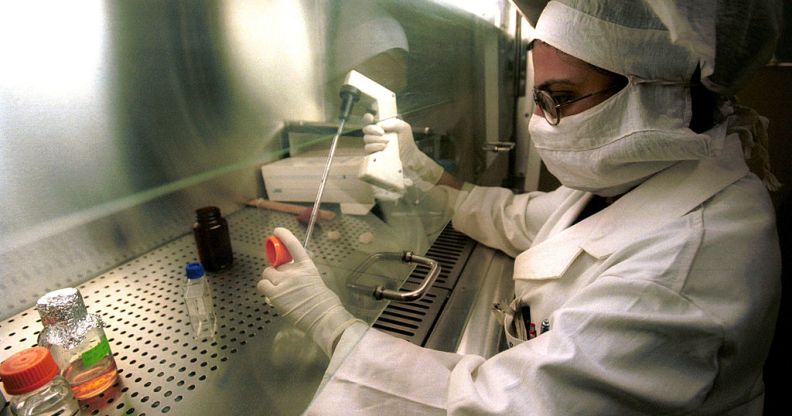The fight against HIV could be ‘set back 10 years or more’ thanks to the coronavirus pandemic

Scientist creating HIV treatment (Jean-Marc Giboux/Getty)
Coronavirus is causing severe disruptions to HIV services that could set back progress on AIDS by ten years or more, a worrying new report has revealed.
The report by UNAIDS warns that the fight against AIDS could be blown “way off course” as the two epidemics “collide” in certain countries.
In the next year sub-Saharan Africa could suffer more than 500,000 additional deaths if HIV/AIDS treatment is completely disrupted for just six months, and even a 20 per cent disruption could cause an additional 110,000 deaths.
“Those of us who survived HIV and fought for life and access to treatment and care cannot afford losing the gains that took so much effort to win,” said Gracia Violeta Ross, president of the Bolivian Network of People Living with HIV.
“In some Latin American countries we are seeing how HIV resources, medicines, medical staff and equipment are being moved to the fight against COVID-19.
“Some good lessons and practices of the HIV response, such as meaningful participation and accountability, are being ignored. We will not allow HIV to be left behind.”
Missed targets have resulted in 3.5 million more HIV infections and 820,000 more AIDS-related deaths since 2015, the report found. Decisive action and urgent financial funding is now needed to avoid further setbacks in the coming years.
“We cannot have poor countries at the back of the queue. It should not depend on the money in your pocket or the colour of your skin to be protected against these deadly viruses,” said Winnie Byanyima, the executive director of UNAIDS.
“We cannot take money from one disease to treat another. Both HIV and COVID-19 must be fully funded if we are to avoid massive loss of life.”
UNAIDS strongly advised countries to increase investments in both diseases, noting that in 2019, funding for HIV fell by 7 per cent from 2017, to US$ 18.6 billion.
This setback means that funding is 30 percent short of the US$ 26.2 billion needed to effectively respond to HIV in 2020.
The report highlights the “remarkable” progress in antiretroviral therapies but notes that access to these is “highly unequal” across the world as achievements have not been shared between countries.
Too many vulnerable people and populations are still being left behind, with stigma and discrimination continuing to be big barriers for marginalised groups.
Around 62 per cent of new HIV infections occurred among key populations and their sexual partners, including men who have sex with men, sex workers, people who inject drugs and people in prison, despite them constituting a very small proportion of the general population.
The report points to the success of countries like Eswatini, Lesotho and South Africa, where comprehensive services with a high coverage of combination prevention options have narrowed inequality gaps and driven down new infections.


